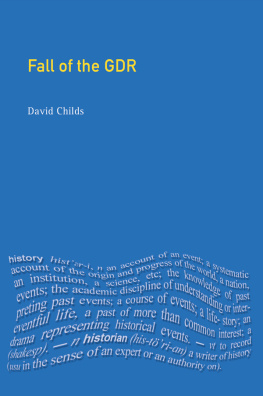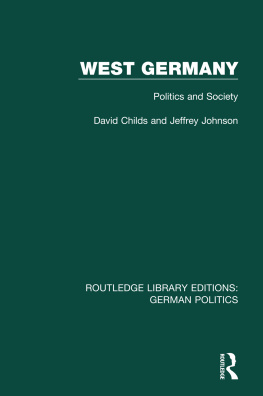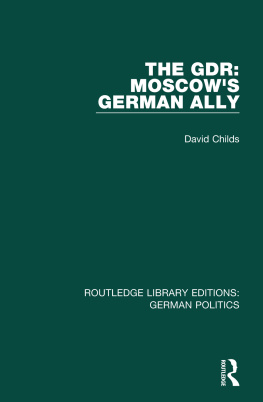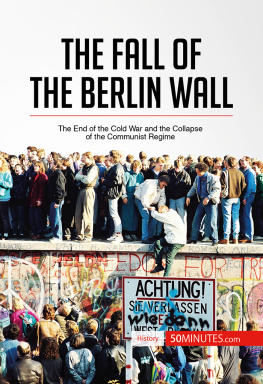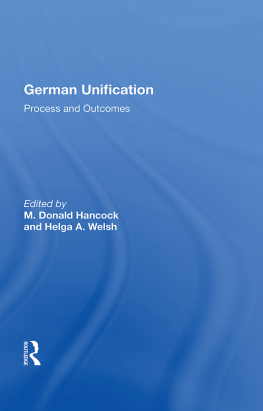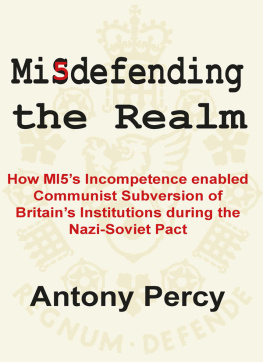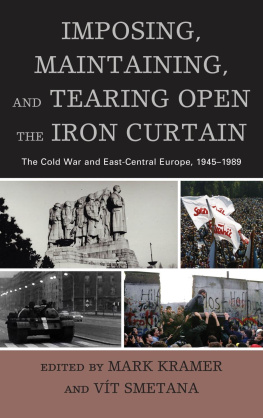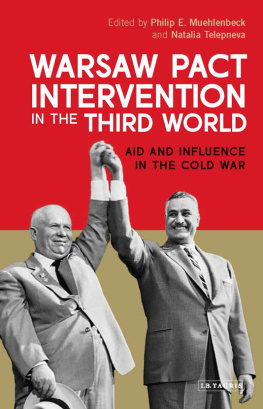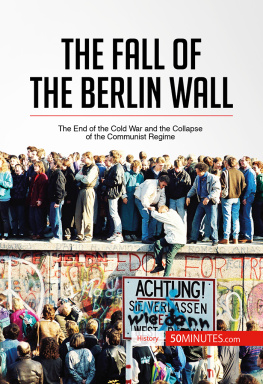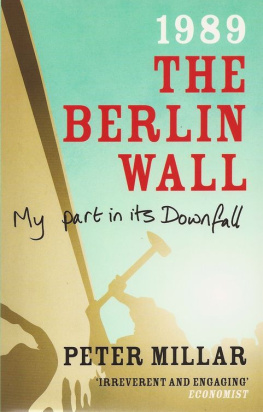David Childs - The Fall of the GDR
Here you can read online David Childs - The Fall of the GDR full text of the book (entire story) in english for free. Download pdf and epub, get meaning, cover and reviews about this ebook. year: 2014, publisher: Taylor and Francis, genre: History. Description of the work, (preface) as well as reviews are available. Best literature library LitArk.com created for fans of good reading and offers a wide selection of genres:
Romance novel
Science fiction
Adventure
Detective
Science
History
Home and family
Prose
Art
Politics
Computer
Non-fiction
Religion
Business
Children
Humor
Choose a favorite category and find really read worthwhile books. Enjoy immersion in the world of imagination, feel the emotions of the characters or learn something new for yourself, make an fascinating discovery.
- Book:The Fall of the GDR
- Author:
- Publisher:Taylor and Francis
- Genre:
- Year:2014
- Rating:5 / 5
- Favourites:Add to favourites
- Your mark:
- 100
- 1
- 2
- 3
- 4
- 5
The Fall of the GDR: summary, description and annotation
We offer to read an annotation, description, summary or preface (depends on what the author of the book "The Fall of the GDR" wrote himself). If you haven't found the necessary information about the book — write in the comments, we will try to find it.
The Fall of the GDR — read online for free the complete book (whole text) full work
Below is the text of the book, divided by pages. System saving the place of the last page read, allows you to conveniently read the book "The Fall of the GDR" online for free, without having to search again every time where you left off. Put a bookmark, and you can go to the page where you finished reading at any time.
Font size:
Interval:
Bookmark:
The GDR in 1988 a stable state?
As the military band goose-stepped its way past the East Berlin reviewing stand followed by other military units, and delegations of the Free German Youth and mass organisations, the East German leaders smiled confidently at their followers below. The date was 7 October 1988 and the occasion was the 39th anniversary of the founding of their state, the German Democratic Republic (GDR), in 1949. Most of them remembered that first celebration. Certainly Erich Honecker, General-Secretary of the ruling Socialist Unity Party (SED) and head of state, Willi Stoph, head of government, Kurt Hager, SED secretary responsible for ideology, and Erich Mielke, Minister for State Security, had been there in 1949 celebrating the new state amid the ruins of the old. They had grown old in the service of the GDR. Honecker was 76, Stoph 74, Hager 76 and Mielke already 81. The other 22 members and candidate members of the Politburo of the SED were nearly all as old. The man widely tipped to succeed Honecker, Egon Krenz, was regarded as a youngster at 51. The age factor did mar the image of the GDR. The leaders of the two countries most important for the GDR, the Soviet Union and the Federal Republic of Germany (West Germany), Mikhail Gorbachev and Helmut Kohl, were 56 and 58 respectively. In practical terms, age mattered in that the SED leaders found it difficult to adapt to the changing situation. It mattered too in that they appeared determined to cling to power at all costs. Many citizens of the GDR could not see why their leaders should go on and on when they were classified as pensioners at 65 and forced to retire.
The SED leaders lived since 1960 in a forest settlement on the outskirts of Berlin known as Wandlitz. On 31 May 1960 they had decided that in future all full and candidate members of the Politburo who worked in Berlin should live there. Only Honecker was allowed to have friends among his Politburo colleagues.
Erich Honecker was born in the Saar, the son of a coal miner, in 1912. He took up an apprenticeship as a roofer, but his interest was politics from childhood. He joined the German Communist Party (KPD) youth organisation in 1926 and the KPD in 1929. In 193031 he studied at the Lenin School in Moscow. After the Nazi seizure of power in 1933 he worked in the KPD underground. Arrested in 1935, he was sentenced to ten years imprisonment in 1937. In 1945 he was charged with building up a youth movement which became the Free German Youth (FDJ) in 1946. He served as its Chairman until 1955. Honecker was rewarded for his suffering and loyalty by being elected to the Executive Committee of the SED in 1946. In 1950 he was elected candidate member of the Politburo, becoming a full member in 1958. Walter Ulbricht, SED chieftain, 195071, treated him almost as a son, but this did not stop Honecker seizing his chance to overthrow Ulbricht in 1971. He then attempted to secure his position by promoting his own men to the ruling Politburo. His wife, Margot, was his eyes and ears in the government as Minister for Peoples Education and the only woman minister. She also served as a member of the Central Committee (ZK), first as a candidate, 195063, and then as a full-member from 1963 to 1989. The couple met in the FDJ.
Honeckers colleagues in the Politburo, ranked according to the year they became full members of that body, were, in 1988, as follows.
Willi Stoph served as a Deputy Chairman of the Council of Ministers (deputy head of government), 195462, First Deputy Chairman, 196264, Chairman, 196473, Chairman of the Council of State, 197376, and then Chairman of the Council of Ministers again until 1989. He was born in Berlin in 1914 and completed his apprenticeship in the building trade. He joined the Communist youth moment in 1928 and the KPD itself in 1931. He served in the artillery in the war as an NCO. He turned again to the building industry and Communism after 1945 and was soon on his way up the ladder! In 1953 he was already a member of the Politburo. He proved flexible enough to be moved from building to military matters. He held office as the GDRs first Defence Minister, 195660, after helping to create disguised military units when he was Minister of Interior, 195255. He was given the GDRs highest military rank, Armeegeneral in 1959. In 1973 Honecker moved him to be Chairman of the Council of State, titular head of state. This was a setback. He recovered his position as Chairman of the Council of Ministers in 1976 after Honeckers nominee, Horst Sindermann, stepped down.
Born in the industrial town of Chemnitz in 1910, Erich Mckenberger grew up in a Social Democratic Party (SPD) milieu. He completed his apprenticeship as a machine-fitter and enrolled in the SPD youth movement in 1924. Three years later he joined the SPD itself and worked as a functionary of the Reichbanner, the partys para-military wing. His anti-Nazi activities after 1933 brought him several months in Sachsenburg concentration camp in 1935 and a ten-month jail sentence in 1938. After service in the wartime Wehrmacht, he re-joined the SPD in 1945, supporting merger with the Communists the following year. He rose speedily through the ranks of the new SED, joining the ZK in 1950. In the same year he joined the Politburo as a candidate, becoming a full member in 1958 . As ZK Secretary for Agriculture, 195360, he played a decisive part in the forced collectivisation of farming in the GDR. Various other positions followed, including chairmanship of the SED group in the Volkskammer, 198089.
Born 1909 in Berlin, Alfred Neumann had been active in the workers sports movement. He had fled to Moscow and took part in the Spanish Civil War. Interned by the French and handed over to the Gestapo, he was sentenced to a term of imprisonment in the same jail as Honecker at Brandenburg. He served briefly in a penal battalion before the wars end in 1945. He built his career in Berlin, holding office as deputy mayor in the crucial years 195153. Between 1953 and 1957 he was First Secretary of the SED Berlin organisation. He was a member of the ZK from 1954, joining the Politburo at the same time as a candidate member. He was elected to full membership in . From the 1960s his main responsibilities were in the government, and for many years he was a First Deputy Chairman of the Council of Ministers.
Born in 1921, Kurt Hager was regarded as one of the most influential members of the Politburo. An old KPD member, he had spent the war years in the sanctuary of England. From 1952 he headed the department responsible for science and universities, having been appointed Professor of Philosophy at the Humboldt University, East Berlin, in 1949. His rise under Walter Ulbricht, SED leader until 1971, was swift. He was elected to full membership of the ZK of the SED in 1954 after serving as a candidate from 1950. In 1955 he was appointed a Secretary of the ZK responsible for science, education and culture. After being promoted to candidate membership of the Politburo in 1959, he was elected to full membership in 1963. He also headed the Politburos ideological commission. Thus Hager wielded enormous power over every aspect of the GDRs cultural life. He could prevent writers being published, could arrange for good or hostile reviews to appear praising or denouncing works by particular writers, artists or directors. He could prevent artists or academics going abroad. He had final say over university appointments and much more. His main rival for power in these areas was General Erich Mielke, head of State Security.
Gnter Mittag was Honeckers only friend in Wandlitz. Born in Stettin in 1926, he worked on the Reich railways before taking up full-time political work. He served as SED Secretary with responsibility for the economy, 196273 and 197689. He had been an economic reformer under Ulbricht in the 1960s, but threw out his reforming zeal when he joined Honeckers inner circle in the 1970s. A candidate member of the Politburo from 1963, he became a full member in 1966 . He was a sick man for many years and died in 1994.
Font size:
Interval:
Bookmark:
Similar books «The Fall of the GDR»
Look at similar books to The Fall of the GDR. We have selected literature similar in name and meaning in the hope of providing readers with more options to find new, interesting, not yet read works.
Discussion, reviews of the book The Fall of the GDR and just readers' own opinions. Leave your comments, write what you think about the work, its meaning or the main characters. Specify what exactly you liked and what you didn't like, and why you think so.

